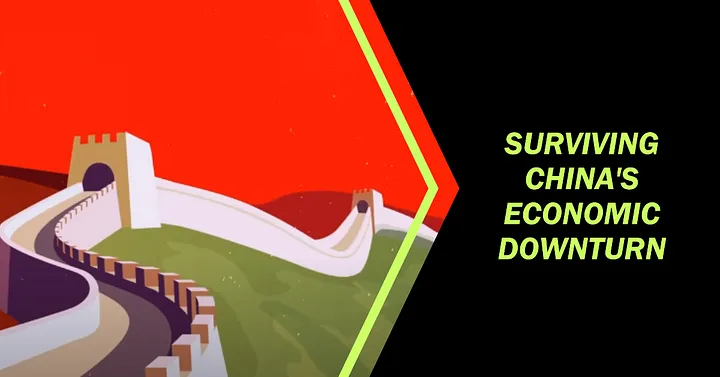So, China's economic juggernaut is hitting a roadblock, and the ripples are reaching far and wide. Over the last three decades, China's wild growth has reshaped the global economic stage, but now, it's standing on the edge of a new chapter—one that's got American businesses scratching their heads.
 |
The End of an Epoch
For a good 30 years, China rode the economic rollercoaster, boosting its factories, pleasing consumers, and throwing its weight around the world. But, all that relentless pursuit of economic glory came at a cost—cue the colossal real estate bubble and a landscape drowning in debt.
But hold on, there's a seismic shift happening. President Xi Jinping is steering the Communist Party away from chasing wealth to chasing national security. It's a signal that the economic party is winding down, and now China is playing a strategic game of power politics.
Real Estate Meltdown
Right at the heart of China's economic soap opera is the real estate market. It partied too hard, thanks to wild speculation and easy money, and now it's on the verge of a dramatic collapse. Big players like Country Garden and Evergrande are on shaky ground, and government efforts to cool the property market have only added fuel to the fire. What was once a thriving market is now facing defaults, protests, and an impending crisis.
Strains Across the Board
But it's not just real estate doing the jitterbug. China's economy is stuck in deflation mode, grappling with a serious lack of local demand. Exports, the golden goose of GDP growth, are at a three-year low. Trade tensions with Europe and the US are reshaping global supply chains in a way that might make multinational corporations rethink their love affair with investing in China.
The Unraveling Future
This economic slowdown isn't your regular cyclical stumble; it's a revealing peek into some deeper structural issues. Projections for 2023 are painting a gloomy picture with a growth rate of 3.8%, a big drop from the earlier rosy estimates. The authorities are dancing on a tightrope, trying to fix financial hiccups without setting off a social earthquake. The economy is bogged down with problems, from fixing the property market mess to dealing with an aging population and a shrinking workforce.
A New Prioritization
In the middle of this economic whirlwind, Beijing is changing its game plan. The focus is shifting from building stuff to building military muscle. China's defense budget, a whopping $700 billion, is giving the US a run for its money. This switcheroo has consequences for global supply chains, especially in sectors like pharmaceuticals and green tech, where uncertainty is the new boss in town.
Red Flags for US Businesses
This reshuffling of China's economic deck is throwing up red flags for American businesses. Sectors like agriculture, commodities, and tech exports might hit a few bumps as China's appetite takes a nosedive. The reset button on the trade relationship could sting US farmers and companies that went all-in on the Chinese consumer market. The fog around China's policies and the looming threat of supply chain disruptions have multinational corporations playing a game of economic chess.
Navigating Uncharted Waters
As China trades its economic dreams for power moves, US businesses are in for a wild ride. The tangled web of global supply chains is making it tricky to figure out just how big the disruptions might be. The recent hearing by the House Select China Competition Committee is a loud reminder—vigilance is the name of the game, especially when it comes to supply chain vulnerabilities tied to China's ever-shifting priorities.
Conclusion: A Brave New World
The era of China's unstoppable economic boom is officially history, ushering in a complex and unpredictable future. US businesses need to buckle up for this new reality, where China might still flex its muscles but won't necessarily be the economic powerhouse we knew. As the world map gets a makeover, businesses need to reevaluate their game plans, lock down those supply chains, and stay nimble in the face of unprecedented changes.
In this unfolding saga, the moral is crystal clear—when economic heavyweights change their tune, the aftershocks are felt far and wide, and being able to pivot is your survival kit in this ever-evolving economic adventure.
FAQs
Is China's economic boom over?
Yes, China's economic boom has reached its end. The three-decade supercycle of uninterrupted expansion in manufacturing, consumption, and global influence is now facing significant challenges.
What led to the decline of China's economy?
The decline is attributed to policy mistakes stemming from the relentless pursuit of economic development. Key factors include a massive real estate bubble, a debt-ridden landscape, and a shift in focus from economic prosperity to national security by President Xi Jinping.
How has President Xi Jinping shifted priorities?
President Xi Jinping has redirected the Communist Party's focus from economic prosperity to national security. The shift marks the end of an economic era, with China now strategically pursuing political power over economic growth.
What impact does the real estate market have on China's economy?
China's real estate market is a crucial factor in its economic challenges. Overexpansion fueled by speculation and easy credit has led to defaults and protests, putting major players like Country Garden and Evergrande on the brink of collapse.
How are US businesses affected by China's economic slowdown?
The recalibration of China's economic priorities poses risks for US businesses. Sectors like agriculture, commodities, and technology exports face challenges as China's demand wanes. The uncertainty in China's policies and potential supply-chain disruptions make multinational corporations uneasy.
Comments
Post a Comment